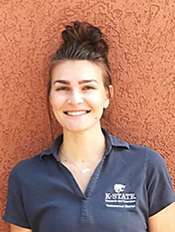
Sometimes you will hear people say to let the grass grow tall right before winter sets in. Their reasoning is that the extra foliage will insulate the crown of the plant from the extreme cold of winter. Although this may sound reasonable, in practice it probably does little, if anything, to increase winter hardiness. On the contrary, a canopy that is too high during the winter may lay over and become matted down, leading to an increased incidence of winter diseases such as snow mold.
Turfgrass species vary genetically in their cold tolerance, with warm-season grasses such as bermudagrass, zoysiagrass, and buffalograss being less cold tolerant than the cool-season types such as tall fescue and Kentucky bluegrass. Given these differences, cold tolerance is improved by increasing the health of the plants going into the winter, and healthy plants are a result of a sound management program (fertilizing, watering, and mowing) during the spring, summer and fall.The lawn will benefit more from continuing to mow at the recommended height than from trying to gain some insulation against winter cold by allowing it to grow tall.
Here is a list of the recommended mowing height ranges (in inches) for home lawns in Kansas:
• Tall fescue: 2.5 -3.5
• Kentucky bluegrass: 2-3
• Buffalograss: 2-3
• Bermudagrass: 1-2
• Zoysiagrass: 1-2
(Note: Mowing at heights below 1.5 inches requires a reel mower).There may be some benefits gained by adjusting mowing heights WITHIN the recommended range at times. For example, it is a good practice to mow warm-season grasses at the higher end of recommended heights during late summer and early fall because this practice should help them store more carbohydrate reserves for the winter, and it may reduce the incidence of certain cool-weather diseases. But the rule to remember is to stay within the recommended height range for your species.
Lauren Walz is the Horticulture Extension Agent for the Cottonwood Extension District. If you have questions, she can be contacted by e-mail at [email protected] or by phone at 785-628-9430 or 620-793-1910.






